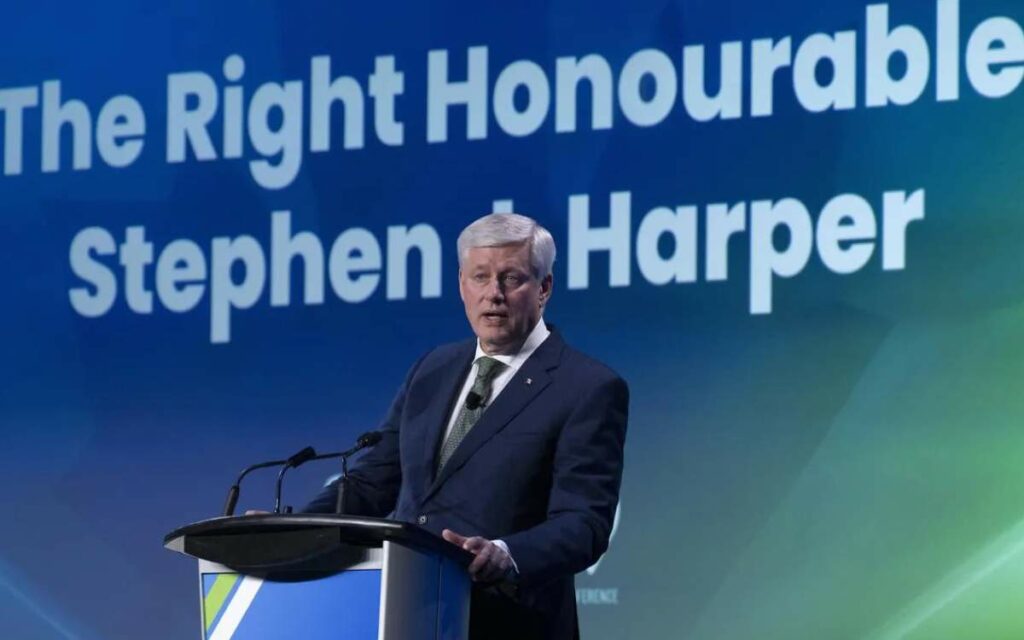
Photo credit: The Canadian Press/Adrian Wyld
On the eve of Joe Biden’s inaugural visit to Ottawa, Canada’s Conservative movement, public affairs professionals, and corporate leaders gathered downtown in the nation’s capital for the annual Canada Strong & Free Networking Conference. Big names crowded the speaking agenda for the two-day event, including former Prime Minister Stephen Harper, who delivered Wednesday’s keynote address.
As chairs filled up and latecomers were forced into the standing room-only section at the back, one would never know based on the reverent audience that the Conservative Party had recently been embroiled in a civil war shortly after the 2021 election. In fact, there was little indication at all that a cutthroat leadership debate took place at the same conference this time last year, or that there have been five leaders of the Party in the last eight years since Harper last addressed the Canadian Conservative movement in such a public way.
In an ironic twist of fate, the very ballroom where Harper kicked off his address was once host to then-leader Erin O’Toole for the duration of the 2021 election campaign. O’Toole had used the empty space to broadcast his message to voters in the midst of the COVID-19 pandemic, at a time where crowds and fanfare seemed like a thing of the past.
Harper couldn’t have asked for a more receptive audience to broadcast his message. It could be a testament to the mood in Ottawa today, or the onslaught of public opinion polls over the course of the last several months that have pointed to both a desire for change and a major shift in voter intention leaning in favour of the Conservatives winning the next election.
Maybe it’s the fact that as Harper was speaking, a bombshell story by Global News broke alleging that a Liberal Member of Parliament met with the Chinese consul general in Toronto in an attempt to delay the release of Michael Kovrig and Michael Spavor.
It could also be that Harper reminds us of the fact that when Conservatives win, they can change the trajectory of Canadian history as a result. Balanced budgets, lower taxes and smaller government were a cornerstone of his policy platforms, and he managed to deliver.
Regardless of the reason why, it is the first time since well before the 2015 election that the Conservative movement feels energized and that winning the next election might actually be a real possibility.
During his 20-minute speech, Harper touched on a number of topics including the rise of the Conservative movement and the state of democracy today. He offered up a note of cautious optimism, stating that “there’s a lot of criticism of democracy these days and a lot of challenges in the democratic world – pretty serious ones. And democracies, if we’re honest, rarely get things exactly right at any point in time. But democracies are adaptable, and resilient and over time when it becomes obvious that democracies are on the wrong path, democracies have a way of correcting errors, changing course, and revitalizing themselves.”
While Harper was speaking about democracy, one could easily think he was reflecting on the state of the political party that he helped create. It is true that the Conservative movement has faced its fair share of problems over the last decade, but as Harper alluded to, better days are on the horizon.

Josie Sabatino is a Senior Consultant at Summa Strategies, focused on providing strategic insight and helping clients meet their objectives in an ever changing and complex political and regulatory environment. Prior to joining Summa, Josie spent nearly a decade in political communications and most recently served as the Director of Communications to the Hon. Erin O’Toole, former Leader of the Official Opposition.






